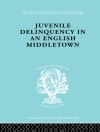This thoughtful and accessible book provides a critical examination of the central debates attached to conceptualizing sexuality as a site of knowledge and politics. These are explored in chapters on the meaning of heterosexuality, sexual citizenship and the associated notions of sexual rights and obligations, queer theory and its relationship with feminisms, both `new′ and `old′. Also included is discussion of responses to the HIV/AIDS epidemic and the implications for understandings of gender and sexuality.
Jadual kandungan
Introduction
PART ONE: NEW FEMINISMS, QUEER POSITIONS AND RADICAL REPRESENTATIONS
Theorizing Heterosexuality
From Lesbian Nation to Queer Nation
Sexual Politics and Social Change
`New′ Feminisms for `Old′?
PART TWO: SEXUAL CITIZENSHIP
Citizenship and Sexuality
Extending Citizenship?
Theorizing Sexual Rights
PART THREE: SEXUALITY, GENDER AND HIV/AIDS
Feminism and the Challenge of AIDS
In(Visible) Women and Dis(Appearing) Men
Sexuality, Identity and Risk
Mengenai Pengarang
Diane Richardson is well established as an international and national authority in the area of the sociology of sexuality, with many related publications. In particular, she has made a significant contribution to three different areas of this body of knowledge: theories of sexual identity; sociological understandings of HIV/AIDS; and feminist accounts of sexuality.
She has previously undertaken a number of funded projects examining social and economic aspects of heterosexual transmission of HIV and has held Visiting Professorships/ Fellowships at a number of academic and research centres in the field of sexuality and gender divisions, including the Centre for Education and Research in Sexuality at San Francisco State University, the National Centre for AIDS Social Research, Sydney and Harvard University.
Much of my work addresses the newly emergent body of theory on heterosexuality, especially in post modern, feminist and queer theory. My interests in this area include the relationship between concepts of citizenship and sexuality, identity and social change and the (hetero) sexualisation of the public/private divide. A series of articles are in press or in preparation reflecting these interests, in particular the relationship between concepts of citizenship and the institutionalisation of heterosexuality.
In addition, I have a current interest in developing conceptual frameworks in the study of sexual violence; in particular the processes, by which violence to the person is defined, interpreted and legitimated.












